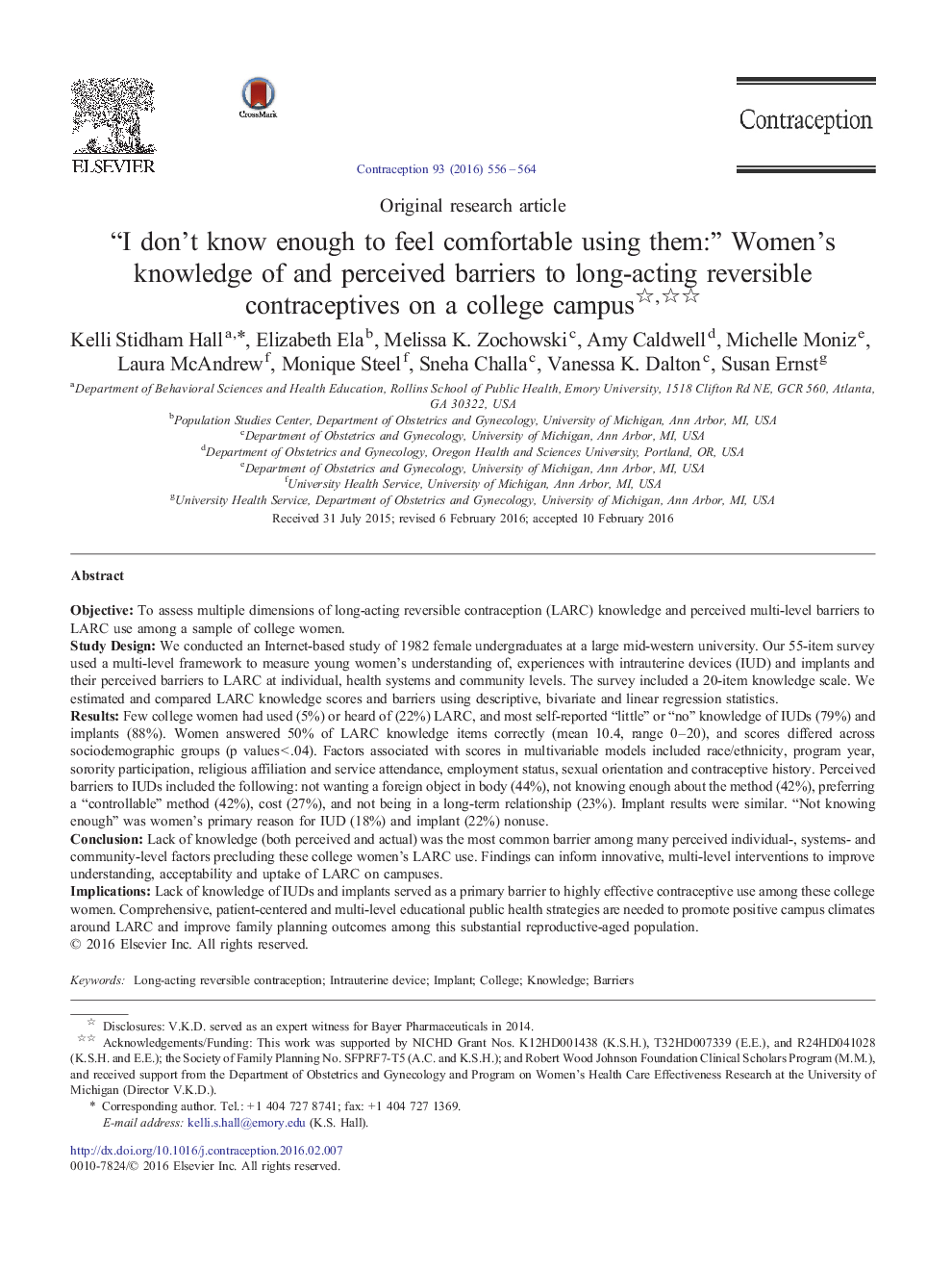| کد مقاله | کد نشریه | سال انتشار | مقاله انگلیسی | نسخه تمام متن |
|---|---|---|---|---|
| 6170504 | 1251406 | 2016 | 9 صفحه PDF | دانلود رایگان |
ObjectiveTo assess multiple dimensions of long-acting reversible contraception (LARC) knowledge and perceived multi-level barriers to LARC use among a sample of college women.Study DesignWe conducted an Internet-based study of 1982 female undergraduates at a large mid-western university. Our 55-item survey used a multi-level framework to measure young women's understanding of, experiences with intrauterine devices (IUD) and implants and their perceived barriers to LARC at individual, health systems and community levels. The survey included a 20-item knowledge scale. We estimated and compared LARC knowledge scores and barriers using descriptive, bivariate and linear regression statistics.ResultsFew college women had used (5%) or heard of (22%) LARC, and most self-reported “little” or “no” knowledge of IUDs (79%) and implants (88%). Women answered 50% of LARC knowledge items correctly (mean 10.4, range 0-20), and scores differed across sociodemographic groups (p values < .04). Factors associated with scores in multivariable models included race/ethnicity, program year, sorority participation, religious affiliation and service attendance, employment status, sexual orientation and contraceptive history. Perceived barriers to IUDs included the following: not wanting a foreign object in body (44%), not knowing enough about the method (42%), preferring a “controllable” method (42%), cost (27%), and not being in a long-term relationship (23%). Implant results were similar. “Not knowing enough” was women's primary reason for IUD (18%) and implant (22%) nonuse.ConclusionLack of knowledge (both perceived and actual) was the most common barrier among many perceived individual-, systems- and community-level factors precluding these college women's LARC use. Findings can inform innovative, multi-level interventions to improve understanding, acceptability and uptake of LARC on campuses.ImplicationsLack of knowledge of IUDs and implants served as a primary barrier to highly effective contraceptive use among these college women. Comprehensive, patient-centered and multi-level educational public health strategies are needed to promote positive campus climates around LARC and improve family planning outcomes among this substantial reproductive-aged population.
Journal: Contraception - Volume 93, Issue 6, June 2016, Pages 556-564
